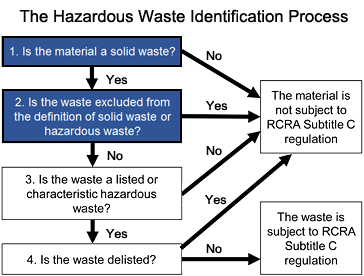The Ultimate Guide To Reclaim Waste
Table of ContentsGetting My Reclaim Waste To WorkSome Ideas on Reclaim Waste You Need To KnowGetting The Reclaim Waste To Work6 Easy Facts About Reclaim Waste ExplainedReclaim Waste for Beginners
Explore the types, incidents, and forms of fluid waste. Domestic sewage waste refers to the waste and items from a household sewage-disposal tank. This sort of waste is produced by human beings in houses, schools, and various other buildings. This only consists of sewage-disposal tanks that have a drainpipe area. The correct monitoring and disposal of residential sewer waste require liquid waste to be moved to a sewer treatment plant where the correct methods and tools are related to purify and take care of waste.
Industrial waste usually consists of possible risks, such as flammable products or a blend of fluid and solid waste products, and needs an extra sophisticated and thorough disposal procedure. The disposal of business waste typically includes the filtration of waste before transportation to guarantee secure and proper disposal. Industrial waste is developed from byproducts and overflow of commercial procedures and manufacturing.
This sort of waste can not utilize the very same sewage monitoring transportation or procedures as septic or commercial fluids. The hazardous waste administration procedure calls for the examination and screening of liquid waste prior to it undertakes the disposal process (liquid waste removal). Drainage waste is the fluid waste that originates from runoff and excess stormwater in extremely booming areas or cities
Runoff waste can create contamination and flooding if not managed effectively. Find out much more about drain cleaning and waste management. Ensuring proper waste management can avoid calamities and decrease environmental damage. Both people in property settings and professionals in commercial or manufacturing industries can take advantage of understanding the processes and policies of liquid waste monitoring.
Some Ideas on Reclaim Waste You Need To Know
Call PROS Providers today to find out concerning our waste monitoring and disposal solutions and the correct means to care for the liquid waste you generate.
(https://issuu.com/reclaimwaste1)Do you understand what occurs to your water when you draw the plug, purge the bathroom or drain the washing machine? No? Well, it's worth recognizing. This so-called 'wastewater' is not just a vital source yet, after treatment, will certainly be launched to our land, rivers or the ocean. Utilized water from toilets, showers, baths, kitchen sinks, washings and industrial procedures is recognized as wastewater.

water utilized to cool equipment or clean plant and sites devices). Stormwater, a form of wastewater, is runoff that moves from agricultural and metropolitan areas such as roofs, parks, gardens, roadways, paths and seamless gutters into stormwater drains, after rainfall. Stormwater streams untreated directly to neighborhood creeks or rivers, eventually getting to the sea.
Some Ideas on Reclaim Waste You Should Know
In Queensland, most wastewater is treated at sewage therapy plants. Wastewater is transferred from residential or commercial websites with a system of sewage systems and pump terminals, referred to as sewage reticulation, to a sewage therapy plant. City governments construct, keep and operate most sewage treatment plants. Operators are certified under the Environmental Security Act 1994 to release cured wastewater at an appropriate environmental standard into waterways.
The Department of Natural Resources recommends city governments regarding handling, operating and preserving sewage systems and therapy plants. In unsewered areas, city governments might need homeowners to install specific or family sewage treatment systems to deal with domestic wastewater from toilets, kitchens, bathrooms and washings. The Department of Natural Resources authorizes the usage of family systems when they are verified to be efficient.
Many stormwater receives no therapy. In some new subdivisions, therapy of some stormwater to eliminate litter, sand and crushed rock has actually started making use of gross contaminant traps. Wastewater therapy occurs in 4 stages: Gets rid of solid issue. Larger solids, such as plastics and various other items wrongly released to sewers, are gotten rid of when wastewater is gone through screens.
Makes use of tiny living microorganisms knows as micro-organisms to damage down and remove continuing to be liquified wastes and fine particles. Micro-organisms and wastes are integrated in the sludge.
Some Ideas on Reclaim Waste You Need To Know
Nutrient removal is not offered at all sewage therapy plants due to the fact that it calls for costly specialist equipment. Clear fluid effluent generated after therapy may still contain disease-causing micro-organisms - liquid waste removal.

This normally indicates wastewater needs to be treated or impurities removed prior to it can be discharged to waterways. The majority of wastewater streams into the sewage system. Under the Act, regional governments carry out approvals and permits for ecologically relevant tasks (ERAs) entailing wastewater launches that might have a neighborhood effect. The division provides approvals and permits to ERAs entailing wastewater releases that might have a regional or statewide influence.
How Reclaim Waste can Save You Time, Stress, and Money.
Otherwise, examples are considered lab evaluation. Typically lots of examinations are required to establish the levels of each of the different toxins such as oils, hefty steels and pesticides in water. Monitoring supplies factual info concerning water high quality and can confirm that permit problems are being fulfilled. The details acquired with tracking gives the basis for making water quality decisions.